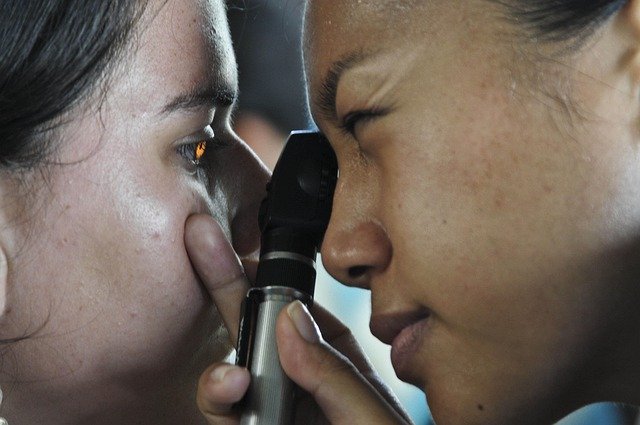Caregiver Jobs: A Growing Opportunity in the Healthcare Sector
As the aging population continues to grow, the demand for caregivers to provide support during night hours has increased significantly. Overnight care or caregiver jobs offer a crucial service for those who need assistance with daily living tasks, but also require care during the night. Whether for elderly individuals, people with disabilities, or those recovering from surgery, overnight caregivers play a vital role in ensuring their safety, comfort, and overall well-being while they sleep. This article explores the importance of overnight care jobs, the responsibilities of caregivers, and the opportunities available in this growing sector.

The Growing Need for Overnight Care
As the global population ages, the demand for overnight care services continues to increase. Many seniors and individuals with chronic health conditions require assistance during nighttime hours to ensure their safety and comfort. This growing need stems from several factors:
-
Aging population: With people living longer, there’s a higher prevalence of age-related health issues that may require overnight supervision.
-
Desire for aging in place: Many seniors prefer to remain in their homes rather than move to assisted living facilities, creating a need for in-home overnight care.
-
Hospital discharge trends: Shorter hospital stays often result in patients returning home while still requiring nighttime monitoring and assistance.
-
Caregiver burnout prevention: Overnight caregivers provide much-needed respite for family members who may be primary caregivers during the day.
Responsibilities of an Overnight Caregiver
Overnight caregivers have a unique set of responsibilities that differ from daytime care. Their primary focus is ensuring the safety and comfort of their clients during nighttime hours. Some key responsibilities include:
- Monitoring sleep patterns and assisting with nighttime routines
- Administering medications as prescribed
- Assisting with toileting and personal hygiene needs
- Responding to emergency situations promptly
- Providing companionship and emotional support
- Maintaining a safe environment and preventing falls
- Documenting nighttime activities and any changes in the client’s condition
Overnight caregivers must be alert and attentive throughout their shift, ready to respond to any needs that may arise. They often work independently, making quick decisions to ensure their client’s well-being.
Opportunities in Overnight Caregiver Jobs
The field of overnight caregiving offers numerous opportunities for those seeking a rewarding career in healthcare. Some key aspects of this growing job market include:
-
Flexible scheduling: Overnight shifts can provide flexibility for those with daytime commitments or who prefer working at night.
-
Competitive compensation: Due to the specialized nature of overnight care, many positions offer competitive pay rates and benefits.
-
Career advancement: Experience in overnight caregiving can lead to opportunities in nursing, healthcare management, or specialized care fields.
-
Personal growth: Caregivers often develop strong problem-solving skills, empathy, and resilience through their work.
-
Job security: The increasing demand for overnight care services contributes to a stable job market in this field.
Overnight caregiving can be an excellent entry point into the healthcare industry or a long-term career choice for those passionate about providing compassionate care.
Here are some interesting facts and tips about overnight caregiving:
- Many overnight caregivers report a sense of fulfillment from knowing they provide critical support during vulnerable hours.
- Successful overnight caregivers often have excellent time management skills and the ability to stay alert during nighttime hours.
- Some overnight caregivers specialize in caring for individuals with specific conditions, such as dementia or Parkinson’s disease.
- Technology, such as motion sensors and medical alert systems, can assist overnight caregivers in monitoring their clients’ safety.
- Building a strong rapport with clients and their families is crucial for effective overnight care.
Training and Qualifications for Overnight Caregivers
Becoming an overnight caregiver typically requires specific training and qualifications. While requirements may vary depending on the employer and location, common prerequisites include:
- Certified Nursing Assistant (CNA) certification
- First Aid and CPR certification
- Background check and drug screening
- Basic healthcare knowledge and skills
- Excellent communication and interpersonal skills
- Physical stamina to assist with mobility and transfers
Many agencies and healthcare facilities offer specialized training programs for overnight caregivers to ensure they are well-prepared for the unique challenges of nighttime care.
Challenges and Rewards of Overnight Caregiving
While overnight caregiving can be a fulfilling career, it comes with its own set of challenges. Caregivers must adjust to working night shifts, which can impact their sleep patterns and personal lives. They may also face periods of isolation and need to manage stress effectively.
However, the rewards of overnight caregiving are significant. Caregivers often develop strong bonds with their clients and take pride in providing essential support during vulnerable hours. The ability to work independently and make a meaningful difference in someone’s life can be incredibly satisfying.
The Future of Overnight Caregiving
As the demand for overnight care continues to grow, the field is likely to see advancements in technology and care practices. Remote monitoring systems, telemedicine integration, and specialized training programs may become more prevalent, enhancing the quality of care provided during nighttime hours.
Additionally, there may be increased recognition of the importance of overnight caregivers in the healthcare system, potentially leading to improved working conditions, career pathways, and professional development opportunities.
In conclusion, overnight caregiving plays a vital role in meeting the growing need for round-the-clock care. With its unique responsibilities, challenges, and rewards, this field offers numerous opportunities for those seeking a meaningful career in healthcare. As the demand for overnight care services continues to rise, skilled and compassionate caregivers will remain essential in ensuring the well-being and dignity of those requiring nighttime assistance.
The shared information of this article is up-to-date as of the publishing date. For more up-to-date information, please conduct your own research.
This article is for informational purposes only and should not be considered medical advice. Please consult a qualified healthcare professional for personalized guidance and treatment.




